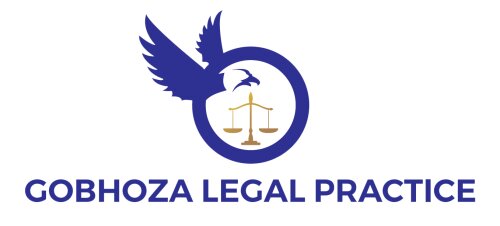Best Labor Law Lawyers in Botswana
Share your needs with us, get contacted by law firms.
Free. Takes 2 min.
Or refine your search by selecting a city:
List of the best lawyers in Botswana
About Labor Law in Botswana
Labor Law in Botswana focuses on ensuring fair labor practices and the rights of both employees and employers within the country. The legal framework is governed primarily by the Employment Act, which outlines various standards related to employment contracts, wages, working conditions, disputes, health, and safety at the workplace. Botswana also adheres to various international labor standards to emphasize fair treatment and equity in workplace relations.
Why You May Need a Lawyer
There are several situations where one might need legal assistance in the field of labor law: - Unfair Dismissal: Understanding if termination procedures were lawful. - Discrimination: Addressing issues of discrimination at the workplace based on race, gender, or other factors. - Contract Disputes: Clarification and enforcement of terms within employment contracts. - Workplace Safety: Ensuring compliance with health and safety regulations. - Non-payment of Wages: Seeking legal recourse for owed wages or benefits. Legal advice can help in navigating these complex issues and ensuring that one's rights are protected.
Local Laws Overview
Botswana’s labor laws are comprehensive, addressing key issues such as: - Contracts of Employment: Requirements for written contracts for employees who work for more than three months. - Work Hours: Standard working hours are capped, and overtime regulations are enforced. - Wage Regulations: Minimum wage standards and regulations on salary payment are clear. - Leave Entitlements: Legal entitlements to annual, sick, and maternity leave are outlined. - Termination Procedures: Specific lawful processes for termination are stipulated to prevent unfair dismissals. Understanding these and other aspects of local laws can help employees and employers to maintain compliance and protect their rights.
Frequently Asked Questions
What is the maximum number of hours I can work in a week?
The Employment Act generally allows a maximum of 48 hours per week for most industries.
Am I entitled to paid leave, and how much?
Yes, most employees are entitled to a minimum of 15 working days of paid annual leave after completing a year of service.
What is considered unfair dismissal?
Unfair dismissal occurs when an employer terminates a contract without following due process or without a fair reason, as outlined in the Employment Act.
Can my employer change my contract terms without my consent?
No, both parties must agree to any changes made to the employment contract.
What should I do if I experience workplace discrimination?
You should report the incident to your employer first. If unresolved, you may escalate the matter to relevant authorities or seek legal advice.
Are there specific laws regulating working conditions in Botswana?
Yes, the Employment Act outlines standards for safe and fair working conditions which employers must follow.
How is maternity leave regulated?
Female employees are entitled to at least 12 weeks of maternity leave, with at least half of the leave being paid leave.
Can my employer withhold my salary?
Withholding of salary without lawful reason or consent is prohibited under the Employment Act.
How do I file a labor complaint in Botswana?
Labor complaints can be filed with the Department of Labor and Social Security, or a labor tribunal if necessary.
What protections exist for vocational trainees or interns?
Trainees and interns are also protected under labor laws, ensuring safe working conditions and fair treatment.
Additional Resources
- Department of Labor and Social Security: Offers guidance and handles disputes regarding employment issues. - Botswana Federation of Trade Unions (BFTU): Provides support and advocacy for workers' rights. - Botswana Employers and Manpower Association (BEMA): Offers resources and support for employers on labor laws.
Next Steps
If you require legal assistance in labor law matters, consider the following steps: 1. Gather Documentation: Collect all relevant documents related to your employment issue, such as contracts, correspondence, and records. 2. Consult a Legal Expert: Seek out a lawyer or legal advisor who specializes in labor law within Botswana for personalized advice. 3. Contact Relevant Authorities: If necessary, file a complaint or seek mediation with the appropriate governmental body. Understanding your rights and the legal framework is crucial to effectively addressing labor-related issues.
Lawzana helps you find the best lawyers and law firms in Botswana through a curated and pre-screened list of qualified legal professionals. Our platform offers rankings and detailed profiles of attorneys and law firms, allowing you to compare based on practice areas, including Labor Law, experience, and client feedback.
Each profile includes a description of the firm's areas of practice, client reviews, team members and partners, year of establishment, spoken languages, office locations, contact information, social media presence, and any published articles or resources. Most firms on our platform speak English and are experienced in both local and international legal matters.
Get a quote from top-rated law firms in Botswana — quickly, securely, and without unnecessary hassle.
Disclaimer:
The information provided on this page is for general informational purposes only and does not constitute legal advice. While we strive to ensure the accuracy and relevance of the content, legal information may change over time, and interpretations of the law can vary. You should always consult with a qualified legal professional for advice specific to your situation.
We disclaim all liability for actions taken or not taken based on the content of this page. If you believe any information is incorrect or outdated, please contact us, and we will review and update it where appropriate.
Browse labor law law firms by city in Botswana
Refine your search by selecting a city.
















